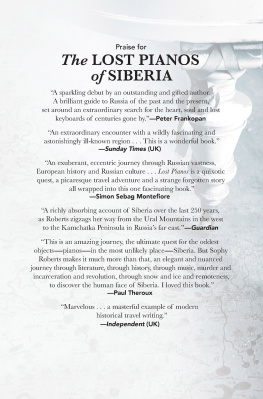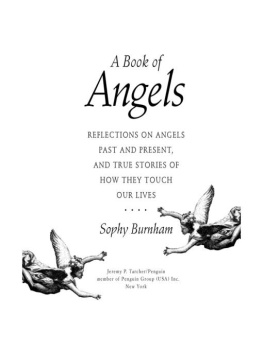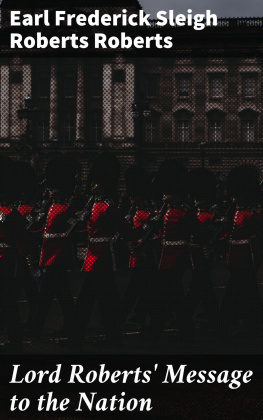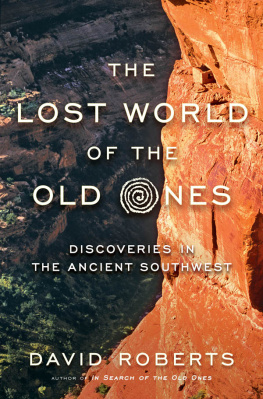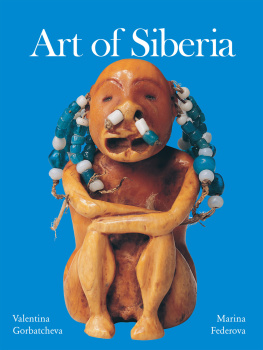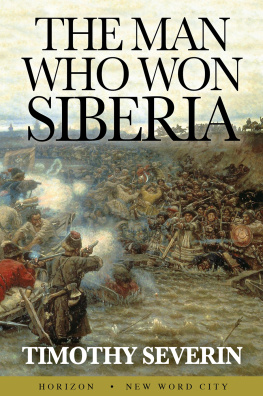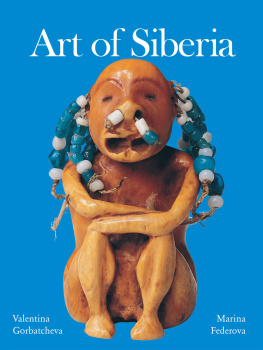Sophy Roberts - The Lost Pianos of Siberia
Here you can read online Sophy Roberts - The Lost Pianos of Siberia full text of the book (entire story) in english for free. Download pdf and epub, get meaning, cover and reviews about this ebook. year: 2020, publisher: Grove Atlantic, genre: Non-fiction. Description of the work, (preface) as well as reviews are available. Best literature library LitArk.com created for fans of good reading and offers a wide selection of genres:
Romance novel
Science fiction
Adventure
Detective
Science
History
Home and family
Prose
Art
Politics
Computer
Non-fiction
Religion
Business
Children
Humor
Choose a favorite category and find really read worthwhile books. Enjoy immersion in the world of imagination, feel the emotions of the characters or learn something new for yourself, make an fascinating discovery.
- Book:The Lost Pianos of Siberia
- Author:
- Publisher:Grove Atlantic
- Genre:
- Year:2020
- Rating:3 / 5
- Favourites:Add to favourites
- Your mark:
- 60
- 1
- 2
- 3
- 4
- 5
The Lost Pianos of Siberia: summary, description and annotation
We offer to read an annotation, description, summary or preface (depends on what the author of the book "The Lost Pianos of Siberia" wrote himself). If you haven't found the necessary information about the book — write in the comments, we will try to find it.
The Lost Pianos of Siberia — read online for free the complete book (whole text) full work
Below is the text of the book, divided by pages. System saving the place of the last page read, allows you to conveniently read the book "The Lost Pianos of Siberia" online for free, without having to search again every time where you left off. Put a bookmark, and you can go to the page where you finished reading at any time.
Font size:
Interval:
Bookmark:
Copyright 2020 by Sophy Roberts
Maps by Lovell Johns Ltd
Jacket design by Becca Fox Design
Jacket photographs: piano Michael Turek; map courtesy of MS Russ 72, Houghton Library, Harvard University
All rights reserved. No part of this book may be reproduced in any form or by any electronic or mechanical means, including information storage and retrieval systems, without permission in writing from the publisher, except by a reviewer, who may quote brief passages in a review. Scanning, uploading, and electronic distribution of this book or the facilitation of such without the permission of the publisher is prohibited. Please purchase only authorized electronic editions, and do not participate in or encourage electronic piracy of copyrighted materials. Your support of the authors rights is appreciated. Any member of educational institutions wishing to photocopy part or all of the work for classroom use, or anthology, should send inquiries to Grove Atlantic, 154 West 14th Street, New York, NY 10011 or permissions@groveatlantic.com.
Lines from Prussian Nights by Aleksandr Solzhenitsyn (trans. Robert Conquest) on p. 256 reproduced by permission of HarperCollins Publishers. Lines from Cyprian Kamil Norwids poem Fortepian Szopena (trans. Leonard Kress) on p. 118, from Maya Trochimczyk (ed.) Chopin with Cherries: A Tribute in Verse, reproduced by permission of Moonrise Press. Lines from Vladimir Mayakovskys Battle-order to the Army of Art on p. 155 in Vladimir Mayakovsky and Other Poems (2016, trans. James Womack) reproduced by permission of Carcanet Press. Extracts from Anton Chekhov, Sakhalin Island, on pp. 36, 69, 71, 72, 127, 128, 129, 1323, 134, 138, 337, 339, and 341 (trans. Brian Reeve) reproduced by permission of Alma Books Ltd.
First published in Great Britain in 2020 by Doubleday an imprint of Transworld Publishers
First Grove Atlantic eBook editon: August 2020
Library of Congress Cataloging-in-Publication data is available for this title.
eISBN 978-0-8021-4930-5
Typeset in 11/15.25 pt Sabon Next LT Pro by Jouve (UK), Milton Keynes
Grove Press
an imprint of Grove Atlantic
154 West 14th Street
New York, NY 10011
Distributed by Publishers Group West
groveatlantic.com
For John, Danny and Jack
Sophy Roberts is a British writer whose work focuses on remote travel. She began her career assisting the writer Jessica Mitford, was an English scholar at Oxford University and trained in journalism at Columbia University. She regularly contributes to the Financial Times and Cond Nast Traveler. The Lost Pianos of Siberia is her first book.

T RAVEL EAST BY TRAIN from Moscow and the clip of iron on track beats out the rhythm of your approach towards the Ural Mountains. This band of hills separates Western Russia from Siberia, rising in Kazakhstan and following an almost direct line up through Russia to the Arctic Ocean. The train passes lazy trails of chimney smoke, gilded churches, and layers of snow stacked like bolts of silk, with the rhythm of the journey the sluggish gait, the grinding stops into gaunt platforms and huddled towns much as early travellers described Russian trains in the fashionable of the time. These days, however, fellow passengers are few; most Russians now fly to and from Siberia rather than use the railways.
During the time of the last Tsar, travellers on the countrys most iconic train of all the train de luxe Sibrien, running for some five-and-a-half thousand miles from Moscow to Vladivostok on Russias Pacific coast described an ebullient opulence, with passengers dripping in , there was a busy restaurant panelled in mahogany, and a Chinese-style smoking lounge, the train presided over by a heavily perfumed fat conductor with a pink silk handkerchief. French-speaking waiters came and went with Crimean clarets and beluga caviar, pushing through carriages decorated with mirrored walls and frescoes, a library, a darkroom for passengers to process camera film, and according to adverts promoting Siberia to tourists, a hairdressing salon, and a gym equipped with a rudimentary exercise bike. Singsongs tumbled out of the dining car as if it were a music hall, with the piano used like a kitchen sideboard to stack the dirty dishes on.
At no point on this great Eurasian railway journey, then or now, was there a sign saying , no meaningful brink to a specific place, just thick weather hanging over an abstract idea.
Siberia is difficult to pin down, its loose boundaries allowing each visitor to make of it whatever shape they want. In a drive for simplicity to organize these indistinct frontiers, I have therefore provided a few notes to explain my parameters.
The breadth of Russia has been squashed and squeezed into chapter maps in a struggle to fit this vast territory on to a single page. What makes it even more challenging is that is a personal, literary adventure. More nuanced scholarly research and further reading is indicated in the Source Notes and Selected Bibliography.
My Siberia covers all the territory east of the Ural Mountains as far as the Pacific, which is the Siberia defined on imperial Russian maps up until the Soviet period. It is an extremely broad interpretation, which includes the Far North and the Russian Far East, taking in dominions lost and gained during the eighteenth and nineteenth centuries. I therefore apologize in advance with the full knowledge that I have not subscribed to modern administrative boundaries or prevailing political correctness about who or what is Siberian. I have instead gone by Anton Chekhovs description: , I think, from Ekaterinburg, and ends goodness knows where.
There were three significant revolutions in early twentieth-century Russia. The first was in January 1905, after government soldiers opened fire on peaceful protesters in St Petersburg in what became known as Bloody Sunday. Vladimir Ilyich Ulyanov, known by his alias, Lenin, and Leon Trotsky became the main architects of the two socialist revolutions in 1917 the February Revolution, and the October, or Bolshevik, Revolution. I tend to refer to the events of 1917 collectively as the Russian Revolution, unless otherwise stated.
As archival evidence has emerged during the last few decades, historians have been able to piece together more authoritative figures relating to Siberian exile under the Tsars, and prisoner numbers in the Soviet Gulag. There are many more numbers, and unknowable quantities of suffering, but I make little further mention of death tolls and prisoner counts. This is because official figures are untrustworthy and other counts remain reluctant estimates.
I use Russia to describe the country prior to the end of the Russian Civil War, which ran from 1918 to 1922, when the Reds (Bolsheviks, later known as communists) fought the Whites (anti-communists, with some factions retaining Tsarist sympathies). The USSR refers to the Union of Soviet Socialist Republics, or Soviet Union, formed in 1922, which expanded to comprise Russia and fourteen surrounding republics. After the breakdown of the Soviet regime following a tumultuous period of economic restruc turing known as perestroika, Russia changed its name. On 31 December 1991, it became known as the Russian Fed eration, which I shorten to Russia for the sake of simplicity. To track these political changes, as well as key moments in the history of Siberia, please refer to the brief Chronology at the end of the book.
Until 31 January 1918, Russian dates conformed to the Julian, or Old Style, calendar, which ran between eleven and thirteen days behind the Gregorian, or New Style, system. I use the Old Style for events that took place inside Russia before the Revolution. I use the New Style thereafter.
Next pageFont size:
Interval:
Bookmark:
Similar books «The Lost Pianos of Siberia»
Look at similar books to The Lost Pianos of Siberia. We have selected literature similar in name and meaning in the hope of providing readers with more options to find new, interesting, not yet read works.
Discussion, reviews of the book The Lost Pianos of Siberia and just readers' own opinions. Leave your comments, write what you think about the work, its meaning or the main characters. Specify what exactly you liked and what you didn't like, and why you think so.

